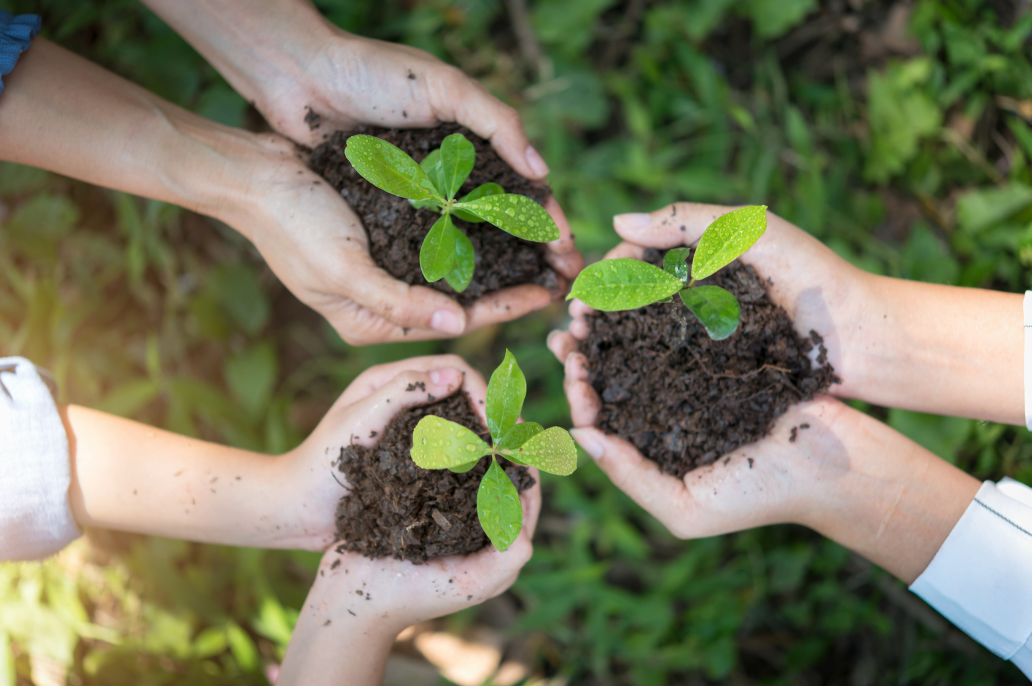This past February, as I was leaving a spin class at my local YMCA, I picked up a flyer for the community garden co-located there. My fifth grader has been begging for years to grown vegetables in the 12 x 16-foot space that passes as the backyard of our urban townhouse. And while yes, it is entirely possible to grow produce vertically in containers, it is not possible to grow such plants in deep shade. My getting a plot at the community garden was motivated by a desire to offer my 11-year old an educational experience. At the time I plunked down my $50 fee for the year, I had no idea my 4 x 10 - foot raised bed was going to provide a cornucopia of mental health benefits and keep me from falling over the cliffs on insanity as the world went sideways.
Ask your doctor if community gardening is right for you. Side effects may include:
Productive Recreation
These are very strange times we find ourselves in. Very strange indeed. But like any new hobby, gardening takes time and mental concentration. Time that I would otherwise have spent worrying about things I have utterly no control over. Plus, being outside is great. Vitamin D and all that. The internet says that gardening can make me happy and cure depression. Scientists says lots of stuff about gardening and dopamine and serotonin.
I feel hugely accomplished bringing home the food my son and I grow.
Education
What I don’t know about growing produce you can just about squeeze into the Grand Canyon. Really, I pretty much started on chapter 1 of Growing Food for Dummies. But community gardens tend to have at least a few people around who know what they are doing. And they are happy to answer questions, offer advice and point out useful resources. Also, in normal times our garden runs actual classes on how to do stuff like make compost. Turns out, it’s more complicated than just throwing all the kitchen scraps into a pile if you don’t want to attract rats and trash pandas. Who knew? Classes got cancelled these past few months, but I feel confident they will start again at some point.
Learning stuff makes me happy.
Practice
Cheap practice, that is. My garden fee didn’t just get me a raised bed plot, which even if I had space would probably have cost more than $50 to build and fill with dirt. It also got me access to a shed full of tools and wheelbarrows, mulch and water. Yes, I had to get my own seeds and seedlings, but the overhead to get some experience is heavily subsidized.
Learning on someone else’s dime makes me freaking ecstatic.
Exposure
Not just to fire ants, though there is an ongoing debate between me and the ones colonizing my plot about how much happier they would be living behind the back fence where no one will be dumping diatomaceous earth on them. I’m talking about exposure to new and interesting varieties of fruits and veggies. Turns out there are tons of things I have never seen in the grocery store but people at my community garden grow; white eggplant, Romanesco broccoli, scorpion peppers, and Verona red radicchio just to name a few.
I find new adventures very exciting, even if the adventures are just on my dinner plate.
Cross Pollination
I planted one cantaloupe plant in our plot with zero appreciation that not all plants are self-pollinating. And sometimes plants like cantaloupe might produce both male and female flowers, but not at the same time. A few weeks later I thought about my mis-plant, and I called one of my community gardener friends in a panic. She pointed out the beauty of the community garden setup is that even if I plant something that is not self-pollinating, there might be a another plot sufficiently close growing something sufficiently similar that the bees will still be able to get the pollen where it needs to be. Sure enough, my solo cantaloupe vine is producing fruit.
Contemplating sex, even plant sex, makes me chipper.
Free food
Only the most experienced of community gardeners exercise restraint when buying seedlings. The rest of us overbuy due to our enthusiasm for the promise of veggies from dirt to plate in under an hour. My community garden, and I am told this is not an uncommon practice elsewhere, has community beds. It’s a place for people to plant the extras. The rule at our garden is if it’s a bed with a yellow stake, it’s fair game. Maybe just pull a few clumps of crab grass while you are there. For the month of March, I got free kale 3 times a week from the community beds. This was particularly well timed since I didn’t feel great about going into a grocery store more than once every 2 weeks.
Being kind to my immune system and digestive track makes it possible to feel all the aforementioned happy feelings.
It was happenstance that I joined the community garden this year. But I am incredibly thankful that I did for all the happiness it has brought me. If you have ever wanted to try gardening, but felt like you didn’t have the space or the tools or know-how, consider community gardening. It might be the introduction to gardening you need.



